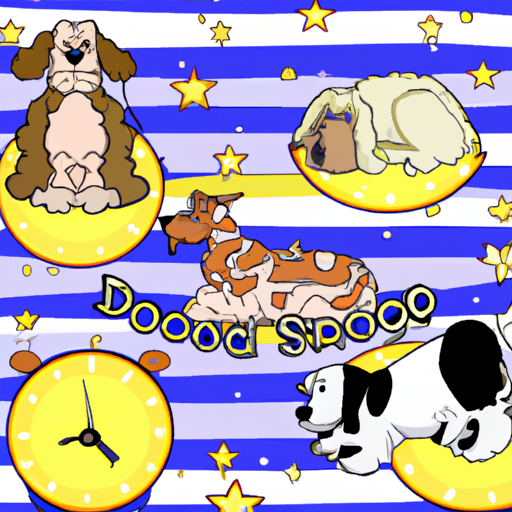Understanding Your Dog’s Sleep Cycle
Yes, you’ve seen it, your faithful companion can nap almost anywhere, anytime. Dogs, much like humans, have a sleep cycle that involves stages of deep and light sleep. The main difference lies in the duration of these stages. While humans spend a large portion of the night in deep REM sleep, dogs spend less time in this stage and more time in light sleep. This is why you’ll often notice your dog’s ears twitching or their paws running in their sleep – they’re more easily woken.
- Puppies sleep up to 18-20 hours a day.
- Adult dogs, particularly active breeds, sleep around 14 hours a day.
- Older dogs may need more sleep due to lower energy levels.
Factors Influencing Your Dog’s Sleep
Several factors can influence the amount of sleep your dog needs. One is their breed. Larger breeds tend to sleep more than smaller ones. Your dog’s daily activities also play a role. A dog that’s left alone all day with little stimulation might sleep out of boredom. On the other hand, working dogs, service dogs, or dogs that receive plenty of physical and mental stimulation will likely sleep less.
- Breed: Larger breeds like Saint Bernards and Mastiffs often sleep more.
- Age: Puppies and older dogs require more sleep.
- Activity Level: Dogs with high energy levels or those that work as service or therapy dogs may sleep less due to their active routines.
The Importance of Quality Sleep for Dogs
Just like for you, quality sleep is essential for your dog’s health. Proper rest helps your dog’s body repair itself, supports their immune system, and contributes to healthy brain function. Lack of quality sleep can lead to mood changes, lowered immune response, and even behavioral issues.
Here’s a quick table to illustrate the importance of each stage of your dog’s sleep:
| Stage of Sleep | Importance |
|---|---|
| Light Sleep | Allows for quick responses to wakefulness if necessary |
| Deep Sleep | Body’s repair processes occur |
| REM Sleep | Supports brain function and memory |
How to Improve Your Dog’s Sleep
Ensuring your dog gets enough quality sleep is vital. Here are some strategies:
- Maintain a consistent schedule for feeding and exercise.
- Provide a comfortable sleeping environment.
- Limit disturbances during their sleep.
- Keep up with regular veterinary check-ups to rule out medical issues that might be affecting their sleep.
FAQ
Q: Do dogs dream?
A: Yes, dogs do dream! You might notice them twitch, move their paws, or make noises during their sleep. This is likely a sign that they’re dreaming.
Q: Is it normal for my dog to sleep all day?
A: It can be, especially for puppies or older dogs. However, if you notice a sudden change in your dog’s sleep patterns, it’s a good idea to consult your vet.
Q: Why does my dog sleep so close to me?
A: Dogs are pack animals and often enjoy the comfort and security of sleeping close to their family members. It’s a sign of affection and trust.
Q: What if my dog has trouble sleeping?
A: Just like humans, dogs can have sleep issues. If your dog seems restless at night or has trouble falling asleep, it might be worth discussing with your vet. There could be an underlying health issue that needs to be addressed.



